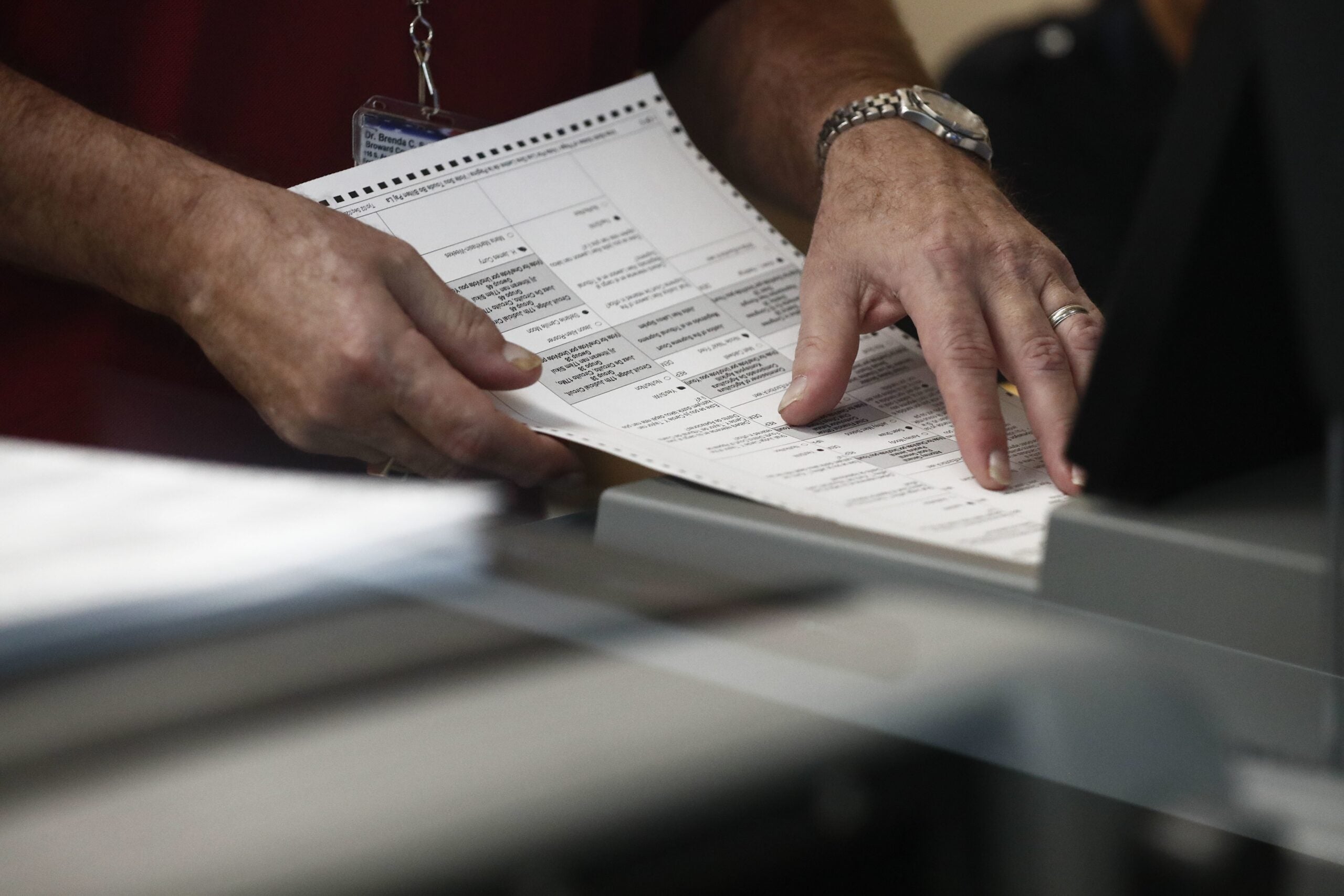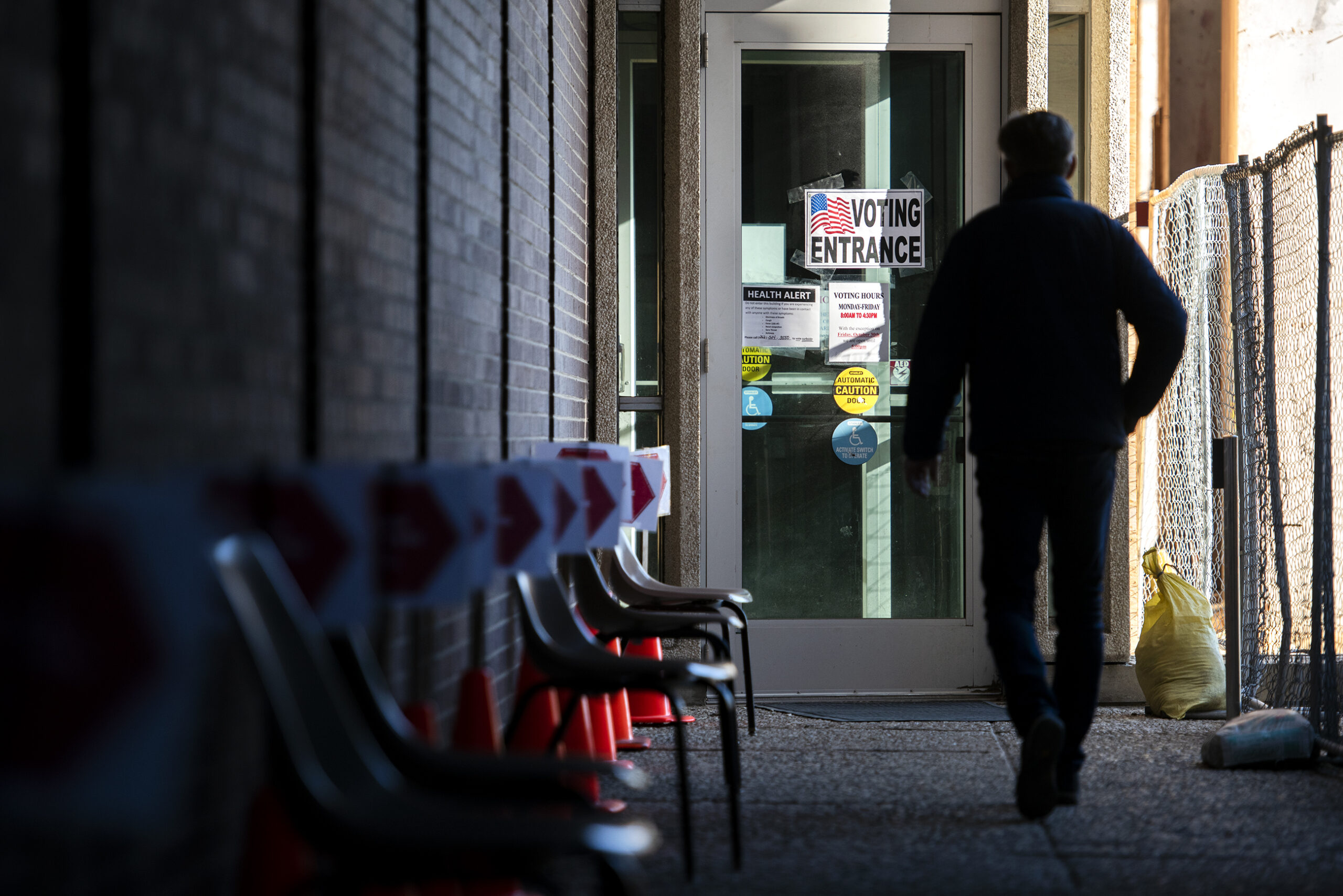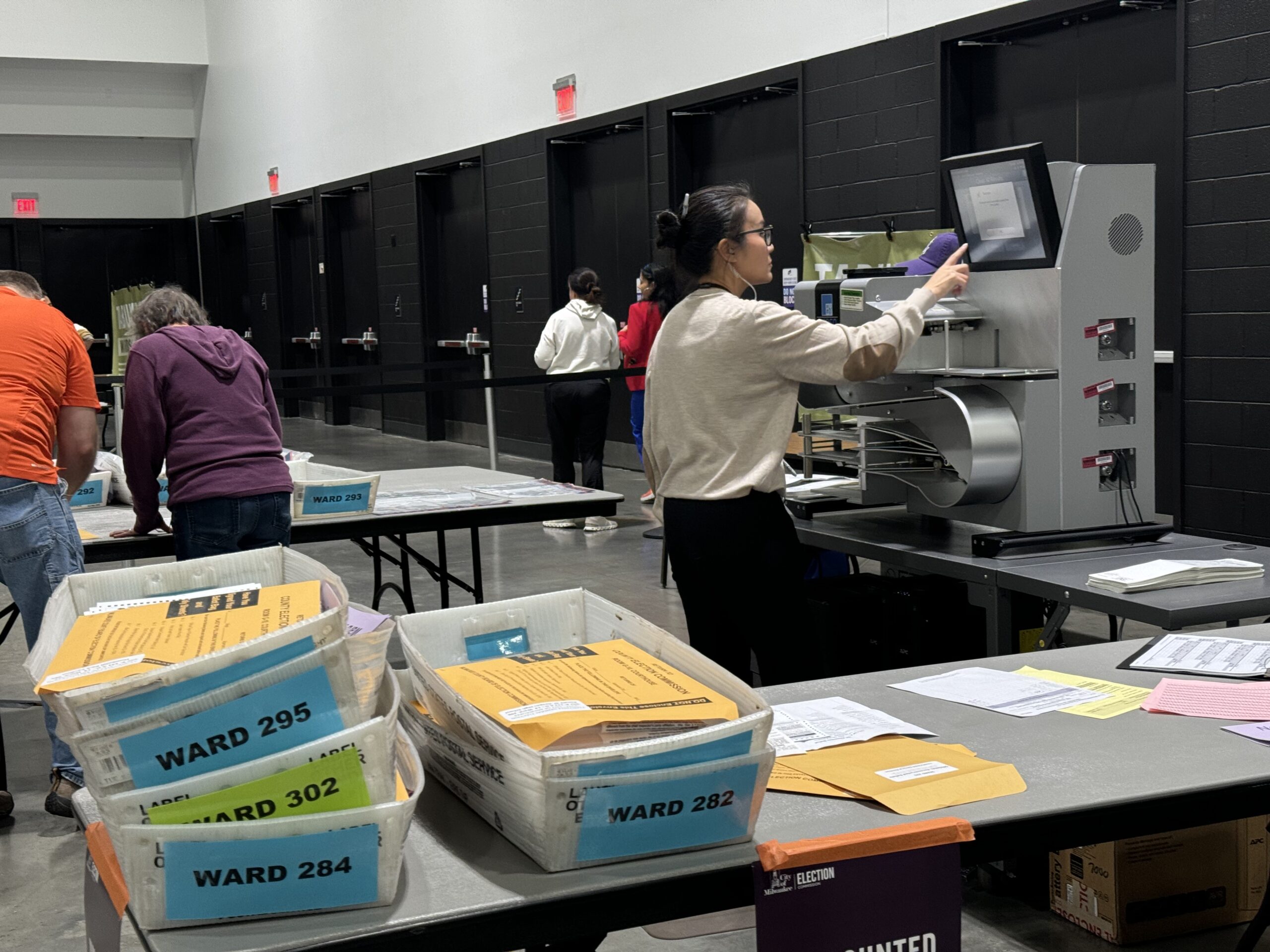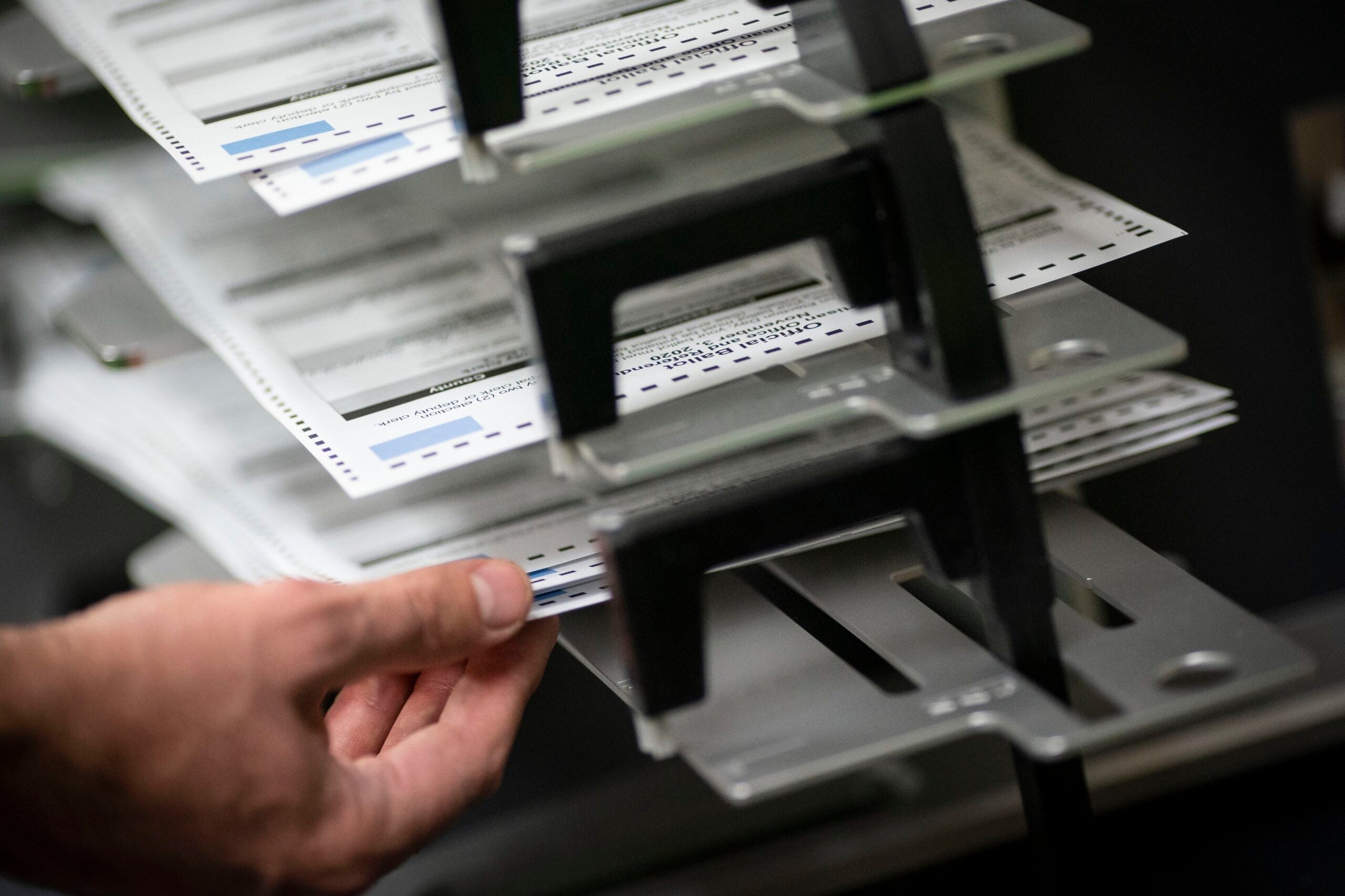People who vote early in Wisconsin would be able to feed their ballots into electronic voting machines under a bipartisan proposal at the state Capitol.
Current law requires local election officials to store early ballots for electronic processing on Election Day. Under this proposal, officials would have the option to electronically process ballots on the day they are cast.
Votes would still not be officially tabulated until Election Day.
Stay informed on the latest news
Sign up for WPR’s email newsletter.
During a Wednesday public hearing at the state Capitol, supporters on both sides of aisle argued the change would allow for quicker tabulation of results on Election Day, save election officials from having to hire additional workers on Election Day to handle a glut of ballots, and increase voter confidence.
Rep. Janel Brandtjen, R-Menomonee Falls, one of the bill’s sponsors, said a steady increase in early voting requires changes to increase efficiency.
“It is incredible, the amount of folks that are now taking advantage and voting early,” Brandtjen said.
Early voting in Wisconsin has increased steadily since 2016. More than 547,000 absentee ballots were cast in the state for the 2018 election, which set a new record for early voting turnout for a midterm election, according to the Wisconsin Elections Commission.
Under the proposal, voters would still have the option to mail in early ballots or cast an early ballot in person and request it’s stored until Election Day, rather than be fed immediately into a machine.
Lori Stottler, clerk-treasurer for the city of Beloit, testified in support of the measure at the public hearing. She said it’s a welcome way to “modernize” voting in Wisconsin.
“This is going to save the city of Beloit hundreds of hours of time and thousands of dollars of money,” Stottler said.
The Wisconsin Municipal Clerks Associations and the League of Wisconsin Municipalities have registered their support for the plan.
However, some raised concerns about security, in light of continued nationwide concerns about voter fraud and ballot tampering.
The League of Women Voters, a statewide advocacy group that posts volunteers to monitor polling places and tabulation on Election Day, said the policy would make it more difficult to provide comprehensive oversight.
“This option would reduce opportunities for observation of absentee ballot processing by spreading it out over a period, potentially, of weeks, as opposed to the current system of processing absentee ballots on Election Day,” the group said in prepared testimony.
Rep. Lisa Subeck, D-Madison, echoed that worry.
“If I saw a machine that wasn’t monitored, I would be concerned,” she said.
Rep. Shae Sortwell, R-Two Rivers, also raised concerns about the plan creating disparities between communities, as wealthier areas would be more likely to have electronic voting machines to allow for earlier electronic processing.
The bill has yet to be voted on in a Senate or Assembly committee.
Wisconsin Public Radio, © Copyright 2025, Board of Regents of the University of Wisconsin System and Wisconsin Educational Communications Board.





